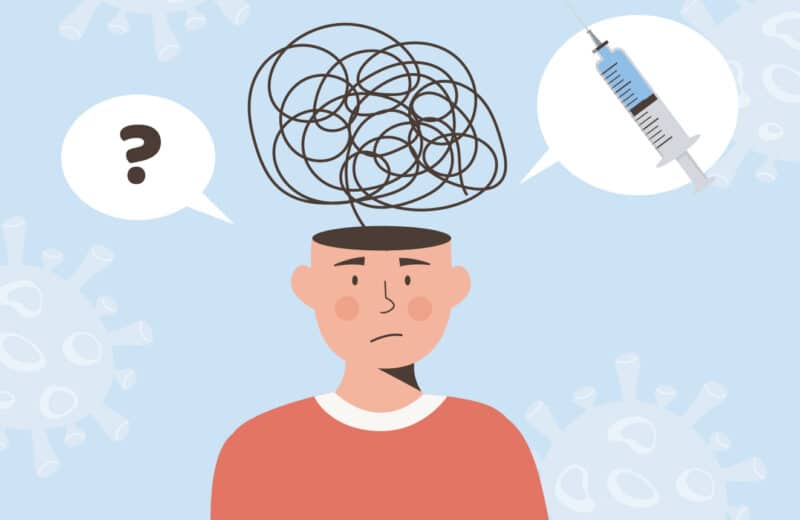How changing abortion laws are impacting Illinois
The Supreme Court’s June decision against abortion rights triggered a cascade of laws to prevent abortions in 13 states, many in the Midwest. But people’s needs don’t always follow changes in law.
People now seeking abortions are facing longer wait times, increased travel costs, and, overall, uncertainty. In response, abortion providers throughout Illinois are expanding their efforts to welcome those from Missouri, Wisconsin, Ohio, and other states who need abortion services.
Illinois providers performed 46,243 abortions in 2020, the most recent year for which the Illinois Department of Public Health has published statistics. Nearly one-quarter — 9,686 — were for people from out of state, primarily Missouri. As more of Illinois’ surrounding states make abortion illegal, the state’s southern region is seeing the largest increase in patients, with people coming in from the lower Midwest and South.
As hospitals and clinics throughout the state prepare for a significantly larger number of out-of-state abortion seekers, providers are coordinating efforts, increasing the number of clinics near state borders, and hiring additional coordinators and navigators to work with patients and direct them to the resources they need, says Brigid Leahy, spokesperson for Planned Parenthood Illinois Action, a not-for-profit formed as the advocacy and political arm of Planned Parenthood in Illinois.
Many are wondering what practical effects the end of the 1973 Roe v. Wade ruling will have on individuals and families who live in Illinois or who come here for an abortion. We take a look at Illinois’ current abortion laws and how the recent ruling affects them.
1. How far into a pregnancy can a person in Illinois opt for an abortion?
Abortion remains legal in Illinois until fetal viability — when the fetus can survive outside the womb — typically between 24 to 28 weeks. But talking with your provider is key because your provider will tell you, based on circumstances, when you’ve reached fetal viability. However, Illinois also permits late-term abortions if the mother’s life is in danger or if the fetus would not be able to survive outside the womb, says Laura Laursen, MD, assistant professor of obstetrics and gynecology at Rush Medical College. “These are extremely rare, less than 1%, and must be done at the hospital,” Laursen says.
Planned Parenthood of Illinois, which runs the most health centers of any entity in the state, offers procedural and medical abortions. They perform abortions into the second trimester, or up to 22 weeks of pregnancy.
2. Can a pregnant teenager receive abortion services without parental consent?
Teenagers in Illinois may receive abortion services without parental notification, as of June 1, 2022. Research indicates that the vast majority of teens involve their parents in abortion decisions, according to Leahy. Repeal of the parental notification requirement helps those teens who are abused or estranged from family; they may now receive abortion services without having to go to court to plead their case. In 2020, physicians performed 1,180 abortions for teenagers in Illinois, or 2.6% of the state’s total.
3. How many abortion providers does Illinois have? How can you access them?
Planned Parenthood of Illinois lists 17 health centers on its website, though the number may increase as more people come to the state for services. There are at least five hospitals that perform abortions in the Chicago area, and a handful of clinics and telehealth options as well. Some doctors also provide abortion services to their patients.
Visit abortionfinder.org or ineedana.com to find abortion clinics, telehealth centers, and hospitals throughout Illinois. Contact Planned Parenthood at 1-800-230-PLAN or plannedparenthood.org/planned-parenthood-illinois to find a clinic or set up an appointment.
4. Does insurance cover abortion services?
In Illinois, Medicaid and most private insurance cover abortion services. However, some people lack health insurance or can’t afford travel costs, even if they have coverage. Leahy says that cost should not discourage anyone who needs an abortion from getting one. “There are resources available, so you shouldn’t hesitate to reach out and make an appointment if you feel like you don’t have the financial resources,” Leahy says. “Planned Parenthood of Illinois has an internal fund from private donations that we tap into to assist patients, and there are also private abortion funds that provide assistance.” Abortion navigators work with patients to assess their needs and connect them with resources.
5. Once I decide to have an abortion, do I have to wait? Will I have to look at an ultrasound before my procedure?
Absolutely not, according to the American Civil Liberties Union’s Illinois chapter. Illinois does not have a waiting period, nor does it require abortion seekers to look at any ultrasound photos of the fetus prior to abortion or listen to any lectures.
6. Are both medical and procedural abortions allowed in Illinois, and what’s the difference?
Illinois offers medical and procedural abortions. In some cases, a person needs one type of abortion over the other depending on the medical situation, Laursen says.
With a medical abortion, effective up to 11 weeks, the pregnant person takes a pill to stop the pregnancy, and then four more pills to induce abortion. During the pandemic, Planned Parenthood of Illinois used telehealth appointments to facilitate this method of abortion, and the organization will continue that service. Medical abortions require follow-up — either an ultrasound or at-home pregnancy test, approximately four weeks afterwards.
Procedural abortions can be done in the second trimester. They take place in clinics, hospitals, or doctors’ offices. The short, in-office procedure does not require follow-up care.
7. How can citizens protect abortion rights in Illinois?
In a word: Vote. Research candidates’ and elected officials’ stances on abortion rights. Congressional representatives at the state and federal levels, as well as governor, lieutenant governor, and secretary of state all have the power to impact abortion rights. “Voting is very important, and knowing who you’re voting for, finding out where the candidates stand on the issues,” Leahy says.













